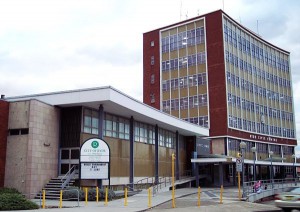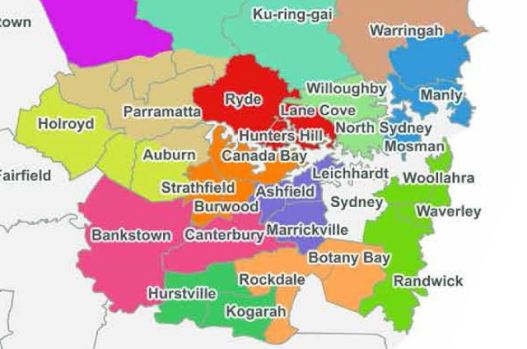
Fears among NSW local governments that eagle-eyed property developers are preparing to swoop on a raft of iconic town halls, municipal buildings and other landholdings made redundant through controversial forced council mergers are simply baseless.
That’s the view of the industry’s peak representative body, Urban Taskforce.
The high profile group on Monday hit back hard at weekend reports that developers were “salivating” over looming sales and that they had already started positioning themselves to snap-up historic town halls and council chambers, slamming such claims as lacking in evidence.
According to Urban Taskforce’s chief executive Chris Johnson, the council properties in question are unlikely to hit the market anytime soon and aren’t even really what developers want anyway, which is new residential builds.
“Municipal buildings generally aren’t the best around town” a dismissive Mr Johnson said. “I don’t think our members are really chasing these.”
He said developers simply did not anticipate that “some enormous piece of land will just appear”.
While developers have perennially criticised local and state government planning processes, their peak industry body has been deeply cautious if not cold on the side effects that forced amalgamations will have on communities and approval processes.
Mr Johnson said he believed that, in the first instance, councils would “want to keep buildings where they are” because this was where people were used to coming. He cautioned immediately moving premises and offices around could be disruptive.
However there are signs emerging that the rapid pace and forceful nature of the amalgamation process is creating confusion for both councils and builders alike as the government attempts to impose an interregnum on major contracts and decisions during the consolidation process.
Mr Johnson said that there were now real concerns that the forced amalgamation process is placing pressure on the planning and approvals process, noting that Urban Taskforce members were already seeing a number of changes that caused concern.
One issue is that developers who need to enter a “voluntary planning agreement” as part of a routine process were getting indications from some council officers that such mechanisms could constitute entering into a new contract contrary to instructions of the state government.
(The agreements are generally used to get developers to financially contribute to urban infrastructure when they build, like upgrading roads or helping to fund parks or other facilities)
It came down to an issue of perception Mr Johnson said.
“The issue here is not the government, but how planners in councils interpret things,” he said, adding that planners were becoming much more concerned.
One challenge is that if a voluntary planning agreement needs to be “ticked-off”, a question can arise as to whether just one local government or all involved in a merger process now need now be involved.
As Sydney’s housing market shows signs of cooling, Mr Johnson stressed that “the planning system needs to be efficient during the amalgamation process.”
In terms of any potential future rationalisation of municipal properties, Mr Johnson said he believed that if this was to happen it would only occur after “a number of years” and would require extensive community consultation.
Parts of the commercial property sector are also highly sceptical about the market appeal of many council properties.
One source, who requested anonymity because of sensitivity around government transactions, suggested that many civic offices built between the 1960s and 1980s were obsolete eyesores that would require costly retrofits to make them appealing to tenants or buyers keen on more modern was of working.
“Functionally, this stuff is pretty restricted. There is plenty of better stock around,” the source said.
Comment below to have your say on this story.
If you have a news story or tip-off, get in touch at editorial@governmentnews.com.au.
Sign up to the Government News newsletter
One thought on “Developers deny ‘land grab’ exploits forced council mergers”
Leave a comment:
Most read
Scathing report finds little has changed at PwC
Qld council welcomes progress on massive battery system
‘Local’ procurement turns out not to be so local, committee hears
Another report finds local government falling down on cyber security
MoG changes see regions, investment return to NSW Premier’s Department


Developers will take any developments sites including council properties. There has been some really questionable buildings built around Sydney including design, functionality, astetics with some safety breaches.
The best this councils can do with excess land is to create a competition allowing architects to co e up with different designs allowing the owners of the buildings (local voters) to vote on the design they believe suits their environment.
anyone stating developers are not interested shouldn’t bet their house, because they will lose.